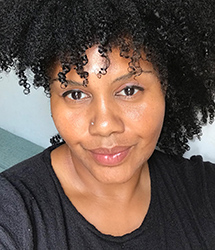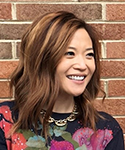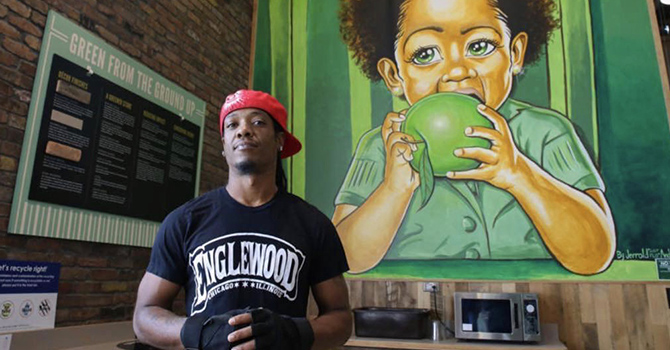Critical race theory (CRT) has become a sticking point in many school districts and state governments across the U.S.
As a parent and Christian leader, I was confused that the worlds of academia and Christianity collided in such a sharply contested manner, resulting in intense debates among pastors and parents.
The arguments that CRT was anti-gospel and divisive left many parents in a panic about their communities’ schools indoctrinating their children with hate. I decided to call my friend Tiffany, an educator and fellow parent, to talk about how pervasive CRT has become in politics, education and the church, and the effects of these conversations on her Black and my Asian children.
I first met Tiffany Childress Price in Chicago when my socially timid son became a best friend to her socially timid son in preschool. Pretty soon, she and I bonded as parents of color navigating family life, education and our Christian spirituality in Chicago.

Price is a Chicago Public Schools educator and researcher. She has lived in the West Side neighborhood of Lawndale in Chicago for 22 years and is a mother to three sons.
She has a master’s degree in secondary science teaching from Wheaton College and is finishing her doctoral studies in education at the University of Illinois Chicago. Price and her family attend Lawndale Christian Community Church, co-pastored by Jonathan Brooks, who is also a Faith & Leadership contributor.
Price explains that the debate about CRT is a “proxy war” for the real issues in society, and she sees the debate as an opportunity to talk about the real issues.
“It’s a Christian responsibility to recognize that in a country where people have been treated differently — legally, socially, educationally, religiously — based on identity markers, we have to at least be curious,” she said.
On behalf of Faith & Leadership, I spoke with Price about the confusion surrounding CRT in education and our churches, why it’s seen as threatening to many parents, and the possibilities that this moment brings to the church. The following is an edited transcript.
Angie Hong: How did you arrive at the current conversation about critical race theory?
Tiffany Childress Price: There was actually a white pastor in Chicago who lives and serves in primarily Black communities, and he started making Facebook posts about CRT. I thought it was old hat, because I started studying CRT years ago at my university during my doctoral program in education.
My first question was, “Did the church finally learn about CRT?” But then I started hearing churches defend or attack CRT. A woman who used to live in my neighborhood told me her whole family full of strong Christians was getting warnings about CRT. I heard that it was taking the church by storm.
Facebook posts were saying things like, “CRT is not the threat to the gospel; our white supremacy is.” Then one of my educator girlfriends who was about to speak at a school got an email asking if she was going to talk about CRT, and she asked me, “What is CRT?”
So I started hosting a reading and discussion group in my backyard. My church [Lawndale Community Church on the West Side of Chicago] attracts a variety of people. It was a perfect group across ethnic and educational diversities to talk about CRT.
I gave them a Kimberlé Crenshaw article, because I felt like most Christians had never actually read critical race theory. I wanted them to go back to original sources to at least know what people were debating.
AH: What comes up in those conversations?
TCP: There were initially some pieces of the puzzle that had to be put together. An older white woman and former mentor of mine started warning me about Black Lives Matter. She kept using the word “Marxist.”
So we talked about Marxism in this group and why it has been viewed as an enemy of Christianity. We compared capitalism and Marxism and asked if either of those schools of thought were inherently Christian. Is Marxism actually anti-Christian? Is any political system or ideological view inherently Christian? Not a lot of answers, but a lot of great questions.
We went back to some of the original sources of these frameworks to understand their foundations.
AH: It’s great that you as an academic and educator can translate this to your average parent who may not have access to these sources and to people who have never read about these topics before. You’re connecting the dots in community, and I think that’s a fruitful conversation, instead of, “Does critical race theory undermine the gospel?”
TCP: Our discussion group has even helped people talk with their families, because there have been falling-outs and fights over CRT. Some of the white members of our church are telling me that their families back at home have been divided over this stuff. Churches have split over this stuff. We share tools with one another to have productive and constructive conversations about this with others.
AH: I once heard you say that you learned a lot of the principles found in critical race theory from your grandfather, who was a Baptist preacher. Can you talk about those principles?
TCP: One of the things that’s touchy about critical race theory in Christian communities is the idea of the oppressed and the oppressors. As a Black woman myself, I understand that my family has been in this country for generations because of the trans-Atlantic slave trade, and we know the position of an oppressed people.
From the time I was 4 or 5, we were taught that the story of Pharaoh and the children of Israel paralleled our stories. So the idea that the words “oppressed” and “oppressor” are offensive to people is really strange to people who grew up in the Black church.
As a researcher and educator, I see that a lot of work we do in research, curriculum and pedagogy reveals that education tends to be ahistorical. We don’t like to talk about the past; we want to say, “Hey, it’s 2021. Math for everybody; science for all. It doesn’t matter what happened in the past.”
My grandparents raised me for some years, and I learned about Jesus from them and how he was a rescuer and redeemer for us as an oppressed people. I heard Esau McCaulley say that we’ve actually been talking about critical race theory for hundreds of years; it’s not new. I’ve read documents from the 1700s where Christian enslaved people said slavery meant that they couldn’t properly marry or be a parent. Those are real examples of the ideas of CRT.
People who are offended by the words “oppressed” and “oppressors” say that those words are not of the gospel. My grandfather was a very vocal, strong Black man who grew up in Huntsville, Alabama, where there were regular threats of lynching. His whole world was colored by oppression, so he fled to Detroit. So yeah, it’s not offensive to me to talk about oppressors and the oppressed.
AH: Why do you think those people are offended? Is it because they see critical race theory as threatening, especially when it’s supposedly being taught to their kids?
TCP: Yes, absolutely, it’s threatening. It threatens the founding-father narrative. When my son Solomon [age 8] found out that George Washington owned 200 slaves, it broke his heart.
Solomon asks a lot of questions about the enslavement period, like, “Why did God allow that? Why is he so cruel? Why didn’t he free us?” He’s obsessed with the presidents. I never learned that George Washington owned slaves when I was in school, but I did learn how courageous he was against the British and how he was our first president. There’s a fear of teaching all of history that taints the story.
I think about our country like a family. A lot of families don’t like to talk about their secrets — abuse, harm, affairs.
A lot of criticism about CRT is that it doesn’t give us a pathway forward, because it focuses on the wrongs of the past. But I actually feel like it’s a chance to discard the deception, the shame, the hiding and say, “You’re right, you’ve never owned slaves, and I’ve never been a slave. But we are left with the choices and ripple effects that our great-great-great-grandparents made.”
How do we forge a pathway forward together? Without a comprehensive education and history, people from the dominant white culture of society are going to see themselves as the benefactors, the saviors, the ones who constructed the country. Anyone who does not represent that story is the beneficiary and deficient. I mean, why were there so many Chinese people in California?
AH: Because they built California!
TCP: You just took the words out of my mouth! They did, literally. Here’s something else I learned recently: nobody knew how to grow rice in South Carolina until Africans came. The Africans showed the Carolinas how to grow rice.
We literally built this country together. But when an incomprehensive history says that white Europeans were the only ones who built this, created this, that all the ideas were theirs, my little Black boys are deficient, and the white boys are the heroes. That trickles down.
AH: And my boys aren’t even a part of the story.
TCP: Right, they’re not even thought about. Something that’s been a part of my adult learning the last five to 10 years is Asian invisibility, and what it feels like that you’re not even in the story. I’ve been taught that we Black people are the children of Israel, but Asians are not even discussed.
Because our country is so polarized, you have to pick a side. Are you white or Black? We ignore entire swaths of people when we make people choose between those two.
With BLM and CRT, I see that all this unrest brought us to these conversations. We are actually talking to each other and learning.
AH: Do you feel like CRT is something that should be engaged with? Should more people dive into it? Should it be a national conversation?
TCP: Yes and no. It’s a theoretical framework, but there are so many different frameworks in many fields. People need to ask, “Who chose this theory at this time to blow up on a national platform?”
We’ve reduced and conflated everything in this conversation about CRT. If you talk about race, you immediately talk about CRT.
As educators, what we want to teach is a comprehensive history to provide a comprehensive education that does not leave my Black boys and your Asian boys deficient.















